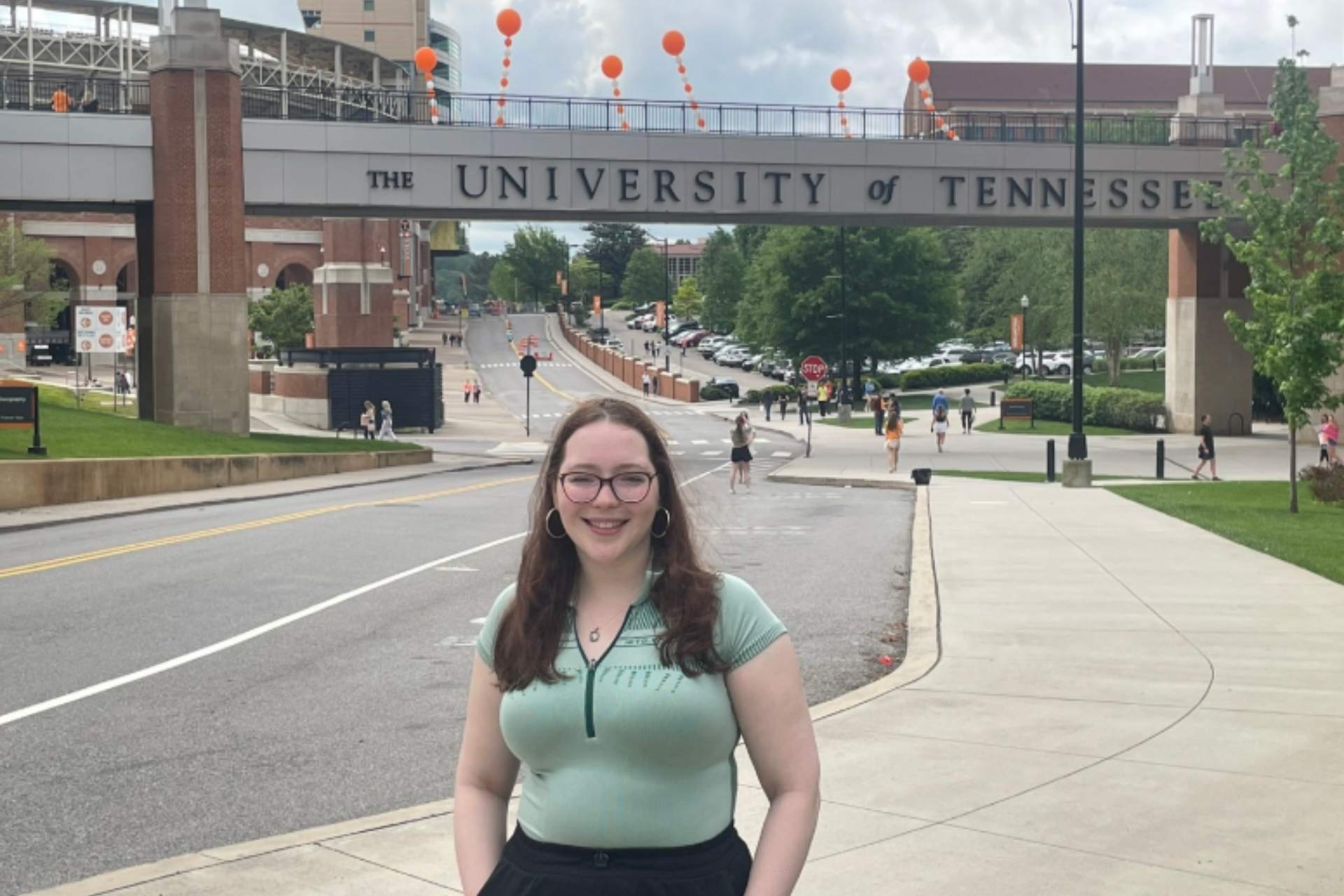
Sophie Williams is off to University of Tennessee to study for a PhD. She applied for funding at four US universities and was offered financial support from three. She has accepted a Graduate Assistantship, Department Graduate Fellowship, the J. Wallace and Katie Dean Graduate Fellowship, and a fee waiver to study at the University of Tennessee, Knoxville. Here she tells us more about the process and her plans.
“I became interested in applying to do a PhD in the USA for two reasons. The first reason is that I have recently branched out in terms of what I am interested in philosophically. I specialised in philosophy of mind during my undergraduate, but through courses taken on the MA at the University of Liverpool, I have become interested in the philosophy of disability, feminist philosophy, epistemology and meta-philosophy. Doing a PhD in the USA means that I do not need to specialise immediately with a specific research project like I would in the UK or Europe. Instead, I can take a few years to develop these interests and expand my philosophical scope.
The second reason that I was attracted to the USA was due to the funding opportunities that are available. All three of the offers that I received came with an assistantship wherein the department would offer me a salary in return for hosting undergraduate tutorials and marking assessments. Not only does this provide me with great financial support, but it also gives me the opportunity to gain some teaching experience. I was also fortunate enough to be offered scholarships from two of the universities that I was accepted to.
Advice for submitting PhD applications to the USA: the most important part of the application is the writing sample. For the University of Tennessee, the admissions board read the writing sample first and then used other parts of the application such as references and the CV to supplement the writing sample. I took a risk by submitting half of my MA thesis as my writing sample with a small paragraph at the beginning that explained the purpose of the thesis and gave a summary of the second half which would be missing due to the word restriction. I took this risk because it was clear to me what I wanted to highlight about myself on the application: that I can come up with my own original philosophy ideas. The writing sample should show off what makes the candidate a great philosopher, be that an original idea, strong argumentation, clear signposting or the deconstruction of complex concepts.
I am incredibly excited to be joining such a great department in the fall, and I am grateful for all of the support given by the University of Liverpool philosophy department in helping me develop as a philosopher during my MA and PhD application process.”
To find out more about our MA Philosophy degrees, visit the PGT webpage or email our PGT director Dr Yiota Vassilopoulou.